N-(2-HYDROXYETHYL)-N-METHYL-4-TOLUIDINE
- CAS NO.:2842-44-6
- Empirical Formula: C10H15NO
- Molecular Weight: 165.23
- MDL number: MFCD05663421
- EINECS: 220-638-5
- SAFETY DATA SHEET (SDS)
- Update Date: 2025-01-21 19:14:50
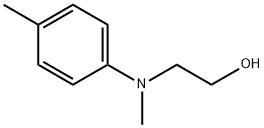
What is N-(2-HYDROXYETHYL)-N-METHYL-4-TOLUIDINE?
The Uses of N-(2-HYDROXYETHYL)-N-METHYL-4-TOLUIDINE
N-(2-HYDROXYETHYL)-N-METHYL-4-TOLUIDINE is an amine organic compound, which can be used as intermediate in organic synthesis.
Synthesis
Add reactant (0.2 mmol, 1.0 equiv), THF (2.0 mL) and CH2Br2 (0.6 mmol, 3.0 equiv) to a flame-dried 10 mL Schlenk tube in a glove box. Seal and take out of the glove box. Cool the reaction mixture to -78°C. Add nBuLi (0.56 mmol, 2.8 equiv) dropwise under N2 atmosphere within 3minutes. Stir the reaction at -78°C for 30 minutes and add ZnCl2 (0.1 mL, 0.5equiv, 1.0 M in Et2O). Allow the mixture to warm to room temperature and stir for 1 hour. Cool the mixture to 0°C. Add a premixture of H2O2 (30% in H2O, 0.5 mL) and NaOH (2.0 M, 1.0 mL). Stir the mixture at room temperature for another 1 hour and dilute with water (20 mL). Extract with DCM (30 mL x 2) and dry over Na2SO4. Filter and concentrate under vacuum. Purify the crude product by silica gel flash column chromatography to obtain product. 1H NMR (CDCl3, 500 MHz) δ 7.08 (d, J = 8.4 Hz, 2H), 6.78 (d, J = 8.4 Hz,2H), 3.80 (t, J = 5.6 Hz, 2H), 3.43 (t, J = 5.4 Hz, 2H), 2.93 (s, 3H), 2.28 (s, 3H), 2.01 (brs, 1H). 13C NMR (CDCl3, 125 MHz) δ 148.3, 129.8, 127.1, 114.0, 60.1, 56.2, 39.1, 20.4.
 Fig The synthetic method of N-(2-hydroxyethyl)-N-methyl-4-toluidine
Fig The synthetic method of N-(2-hydroxyethyl)-N-methyl-4-toluidine
Properties of N-(2-HYDROXYETHYL)-N-METHYL-4-TOLUIDINE
| Boiling point: | 152-154 °C(Press: 10 Torr) |
| Density | 1.047±0.06 g/cm3(Predicted) |
| vapor pressure | 0.062-0.115Pa at 20-25℃ |
| storage temp. | Sealed in dry,Room Temperature |
| form | Liquid:viscous |
| pka | 14.69±0.10(Predicted) |
| EPA Substance Registry System | Ethanol, 2-[methyl(4-methylphenyl)amino]- (2842-44-6) |
Safety information for N-(2-HYDROXYETHYL)-N-METHYL-4-TOLUIDINE
| Signal word | Warning |
| Pictogram(s) |
 Exclamation Mark Irritant GHS07 |
| GHS Hazard Statements |
H302:Acute toxicity,oral H315:Skin corrosion/irritation H319:Serious eye damage/eye irritation H335:Specific target organ toxicity, single exposure;Respiratory tract irritation |
| Precautionary Statement Codes |
P261:Avoid breathing dust/fume/gas/mist/vapours/spray. P305+P351+P338:IF IN EYES: Rinse cautiously with water for several minutes. Remove contact lenses, if present and easy to do. Continuerinsing. |
Computed Descriptors for N-(2-HYDROXYETHYL)-N-METHYL-4-TOLUIDINE
New Products
4-Piperidinemethanol Ethyl 2,4-Dihydroxy-6-methylnicotinate Ethyl isonicotinate 3-pyridine methanol N-Methyl 4-chloro-pyridine-2-carboxamide Radiator Flux Zinc Chloride Solution (All Grades) 2-Fluoro-6-iodobenzoic acid 2-((2,6-difluorobenzyl)(ethoxycarbonyl)amino)-4-((dimethylamino)methyl)-5-(4-nitrophenyl)thiophene-3-carboxylic acid Ethyl2-oxo-2,3,9,10-tetrahydro-1H-pyrido[3',4':4,5]pyrrolo[1,2,3-de]quinoxaline-8(7H)-carboxylate Elinzanetant tert-butyl 2-(4-amino-6-chloropyrimidin-5-yloxy)ethylmethylcarbamate Phenylazomalononitrile 5,6 Dimethoxy-1-indanone 3-Iodophenylacetic acid 2-Hexyn-1-ol Dibenzo-18-crown-6 2-Propanamine, 1-chloro-, hydrochloride (9CI) 3-Pyridineacetonitrile, α-hydroxy- 3-(hexyloxy)-4-(pyridin-3-yl)-1,2,5-thiadiazole N Ethylmethylamine Ethyl Methanesulfonate N N' DimethylEthylenediamine Lead II BromideRelated products of tetrahydrofuran
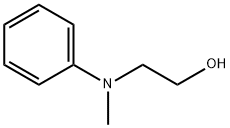
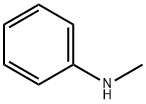
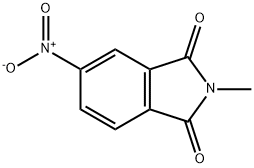
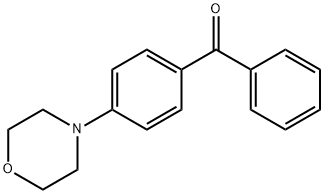
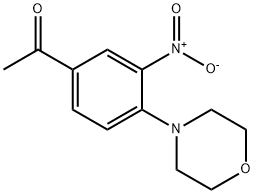

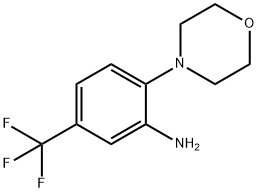
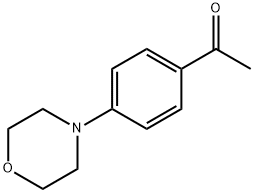
You may like
-
![4-chloro-7H-pyrrolo [2,3-d]pyrimidine 3680-69-1 98%](https://img.chemicalbook.in//Content/image/CP5.jpg) 4-chloro-7H-pyrrolo [2,3-d]pyrimidine 3680-69-1 98%View Details
4-chloro-7H-pyrrolo [2,3-d]pyrimidine 3680-69-1 98%View Details
3680-69-1 -
 4'-Benzyloxy-2-bromopropiophenone 98%View Details
4'-Benzyloxy-2-bromopropiophenone 98%View Details
35081-45-9 -
 53928-30-6 98%View Details
53928-30-6 98%View Details
53928-30-6 -
 5162-90-3 2-Amino-3-(1,2-dihydro-2-oxoquinoline-4-yl)propanoic acid 97%View Details
5162-90-3 2-Amino-3-(1,2-dihydro-2-oxoquinoline-4-yl)propanoic acid 97%View Details
5162-90-3 -
 4-(4-Chlorobenzyl)-2-(1-methylazepan-4-yl)phthalazin-1(2H)-one hydrochloride 98 %View Details
4-(4-Chlorobenzyl)-2-(1-methylazepan-4-yl)phthalazin-1(2H)-one hydrochloride 98 %View Details
79307-93-0 -
 Quinoline-8-sulfonyl Chloride 98%View Details
Quinoline-8-sulfonyl Chloride 98%View Details
18704-37-5 -
 29676-71-9 99%View Details
29676-71-9 99%View Details
29676-71-9 -
 (R)-2-amino-N-benzyl-3-methoxypropanamide 98%View Details
(R)-2-amino-N-benzyl-3-methoxypropanamide 98%View Details
196601-69-1
